Edie Melson's Blog, page 189
September 2, 2020
Check on Your Writer Friends

by Lynn H. Blackburn @LynnHBlackburn
If you spend any time on social media, I’m sure you’ve seen the memes that begin with “Check on your ________ Friends.”
Check on your extrovert friends. We are not okay.Check on your friends with toddlers. We are not okay.Check on your friends with strong-willed daughters. We are not okay.Check on your friends with curly hair. We look like alpacas.Most of the time, these memes make us chuckle, nod knowingly, and move on.
But every now and then you see one that hits closer to home.
Check on your strong friends.Check on your quiet friends. Check on your happy friends.Check on your creative friends.Check on each other.
Your creative friends? There’s a good chance that they are not okay.
For pre-published writers, this is a particularly tough season. With most conferences going virtual, the opportunities to meet with editors and agents are significantly fewer than in the past. And many writers worry that publishers will be hesitant to take a chance on a debut author during this time of uncertainty. So where does that leave them? Trying to write, trying to keep going, and trying not to lose hope.
But y’all. It’s hard.
For published authors, this is an unprecedented experience. While there are some authors who have always written from home and have had few interruptions to their routine, they are the exception, not the rule. Even in the pre-pandemic world, most of us had about 18,000 (give or take a few) responsibilities other than writing. Now, all the systems we had in place to help us get everything done have gone out the window.
But guess what hasn’t gone away? Our deadlines.
For all writers, this is a challenging time to create. There’s actual brain science behind this which we won’t get into, but our brains are working hard y’all. So much harder than they were working in January of this year. And all that energy that’s being expended on things that we used to do on autopilot? That energy is no longer available for us to use for our writing. And it’s hard to create when you’re exhausted.
So, may I ask you to do this? Today. Tomorrow. This weekend.
Check on your writer friends.
Don’t assume we are okay. Make a phone call. Schedule a Zoom. Facetime. Your friends don’t care if you’re wearing makeup or haven’t washed your hair in three days. They need to see you. They need to hear your voice. They need to laugh and commiserate and remember that they aren’t alone. They need to forget about Covid for a few minutes and talk about stories and characters and plot holes. They may need to hear you pray for them—out loud and as in-person as it can be these days. They might need to cry, and they might need you to cry with them.
And if you’re struggling, please, please, I beg of you, please reach out.
I can promise you that you’re not alone. While I’m sure there are plenty of people who are just fine, I think there are way more of us who are hanging on by a fraying thread.
I recently (as in this week) had a bad day. There was no specific thing wrong, but everything was wrong. I was blinking back tears, slamming drawers, and fighting a very deep desire to numb out. But, did I mention deadlines? My deadlines don’t care.
So, I sent a text to a couple of friends and told them I was in a funk. At this point, they could have gone with, “Oh no. Sorry! Hope you feel better soon.” Or, the ever popular, “Praying!” That would have been helpful, especially if they actually prayed instead of just saying they would.
But they went further and asked some discerning questions. Things like “can you figure out what has triggered this” and “can you do something to make you laugh” and then they made me laugh with funny stories—the kind of stuff that you only share with close friends and that leave you laughing so hard you cry over something no one else would think was funny.
As the afternoon progressed into the night and the text stream continued, I realized that while all the things that had stressed me out were still there, but I no longer felt like a hippo had camped on my chest. Twenty-four hours and too many texts to count later, when one friend said, “So, Lynn, do you feel better?” I realized that I had mostly forgotten about the malaise that had gripped me the day before.
And now I can create. (Which is good, because did I mention the deadlines?) :)
Check on your writer friends. They are struggling.Check on your writer friends. They need to know they aren’t alone.Check on your writer friends. The world needs their creativity.
Grace and peace,

TWEETABLECheck on Your Writer Friends - @LynnHBlackburn on @EdieMelson (Click to Tweet)
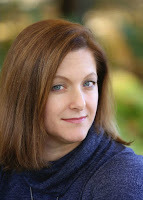 Lynn H. Blackburn loves writing suspense because her childhood fantasy was to become a spy, but her grown-up reality is that she's a huge chicken and would have been caught on her first mission. She prefers to live vicariously through her characters and loves putting them into all kinds of terrifying situations while she's sitting at home safe and sound in her pajamas!
Lynn H. Blackburn loves writing suspense because her childhood fantasy was to become a spy, but her grown-up reality is that she's a huge chicken and would have been caught on her first mission. She prefers to live vicariously through her characters and loves putting them into all kinds of terrifying situations while she's sitting at home safe and sound in her pajamas! Her Dive Team Investigations series kicked off in 2018 with Beneath the Surface and In Too Deep (A SIBA Okra pick and Selah Award Finalist). The 3rd book in the series, One Final Breath, released September 2019 and is a 2020 Selah Award and a 2020 Faith Hope, and Love Reader’s Choice Award finalist. She is also the author of Hidden Legacy and Covert Justice, which won the 2016 Carol Award for Short Novel and the 2016 Selah Award for Mystery and Suspense. Lynn lives in South Carolina with her true love and their three children. You can follow her real life happily ever after at LynnHBlackburn.com and @LynnHBlackburn on Bookbub, Facebook, Twitter, Pinterest, and Instagram.
Published on September 02, 2020 22:00
September 1, 2020
Using Character Traits to Plot Your Book
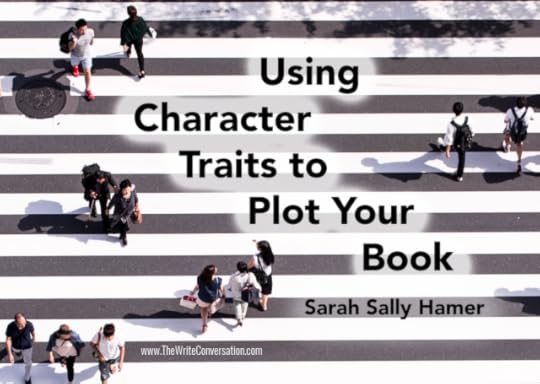
by Sarah Sally Hamer @SarahSallyHamer
Characters are like people. Each of us has "good" traits --courage and resilience and intelligence, for instance. But we also have traits that get us into trouble--foolhardiness, stubbornness, and being "too smart for our own good" come to mind. Same with our characters. We create strong traits, on both sides of the spectrum, and watch as our characters stumble through the story.But they don't need to stumble! We can harness those traits and direct them into strong, cohesive plots. Actually, nailing them is like trying to scratch that hard-to-reach place on your back. Once you know how to use character traits to plot your book, it's easy-peasy.
Ultimately, virtues and vices are part of the arc a protagonist, and possibly antagonists, go through. Picking a virtue or vice and allowing the character to GROW through that vice, can raise a book from "okay" to "wonderful," simply by the character's new understanding of life. Dorothy had to learn that "there's no place like home" before she could go back there. Scarlett had to learn basically the same thing – that, without Tara, her life meant nothing.
But what are their virtues/vices and how do they create the arc?
NOTE: Virtues and vices can be negative or positive, both at the same time. For instance, kindness is not a virtue when it allows our character to be used as a door mat. And stubbornness is a good thing when our character continues to fight for what they want. So, don't get too hung up in positive/negative. Allow your character to be "bad" sometimes!
Dorothy's main "vice" is that she's not happy where she is. She even tells us in the iconic song that all she has to do is go "over the rainbow" and she'll find that happy place. So, she receives a series of lessons to prove to her that the place really doesn't matter, happiness is being okay with where you are. The arc is the journey to a new understanding.
Scarlett thinks a man is all she needs. Her stubbornness keeps her moving forward in a war zone, with babies being born, her family starving, and having to "sell herself" to get enough money to pay taxes on Tara. But her new understanding is that she'll survive on her own.
So, let's play with plot. Joan, our pretend protagonist, has an issue with trusting her own judgment. We'll make her a detective who needs help in solving a crime. Her shady partner isn't dependable and, as the story goes on, she worries that he may betray her. And, of course, at some point, he does, at least in her mind.
It all works against her, or so it seems. He, and others around her, seems to be plotting against her, with each betrayal more intense and personal. The plot takes her through triumphs and abysmal failures. But finally, she learns enough to understand she MUST trust herself. Once she does, everything else falls into line and she gets the bad guy.
This is a very simplistic example of a complicated process, but it is also the core of a story. Everything in the story revolves around the protagonist's character trait – trusting herself. She has to learn that she is trustworthy and that she's a good cop.
Start with a virtue or vice, allow it to evolve into the arc, and teach your character how to trust, or find the way home, or stand on their own. You'll be amazed at how it makes your story come alive!
What character traits can you use to build a strong story core?
TWEETABLEUsing Character Traits to Plot Your Book - @SarahSallyHamer on @EdieMelson (Click to Tweet)
 Sarah (Sally) Hamer is a lover of books, a teacher of writers, and a believer in a good story. Most of all, she is eternally fascinated by people and how they 'tick'. She’s passionate about helping people tell their own stories, whether through fiction or through memoir. Writing in many genres - mystery, science fiction, fantasy, romance, medieval history, non-fiction – she has won awards at both local and national levels, including two Golden Heart finals.
Sarah (Sally) Hamer is a lover of books, a teacher of writers, and a believer in a good story. Most of all, she is eternally fascinated by people and how they 'tick'. She’s passionate about helping people tell their own stories, whether through fiction or through memoir. Writing in many genres - mystery, science fiction, fantasy, romance, medieval history, non-fiction – she has won awards at both local and national levels, including two Golden Heart finals.A teacher of memoir, beginning and advanced creative fiction writing, and screenwriting at Louisiana State University in Shreveport for almost twenty years, she also teaches online for Margie Lawson at www.margielawson.com. Sally is a free-lance editor and book coach at Touch Not the Cat Books, with many of her students and clients becoming successful, award-winning authors.
You can find her at hamerse@bellsouth.net or www.sallyhamer.blogspot.com
From Sally: I wish to express gratitude to the giants whose shoulders I stand on and who taught me so much about the writing craft. I would list every one, if it were only possible.
Published on September 01, 2020 22:00
August 31, 2020
What Does Every Writer Need?

by PeggySue Wells @PeggySueWells
What does every writer need?
That was the question on the test in my university writing course.Easy breezy. I confidently penned my answer. Passion. Every writer needs passion.
The following week, my graded test was returned. Passion was marked wrong.
After class I approached my professor. “What’s the right answer?”
He replied, “Solitude.”
Writers are an independent bunch, boasting individual work habits. Popular novelist Jerry B. Jenkins divides the number of weeks with the number of pages to produce, then fritters away the first week and readjusts his numbers. He writes in the seclusion of a quiet place affectionately termed The Stable.
Seclusion?Annie Lamont tucked herself away in a secluded cabin. Anne Morrow Lindbergh wrote Gift from the Sea from a private retreat in a seaside cottage. Since 1967, author of the Hank the Cowdog series, John Erickson, rises daily at 5:30 a.m. and writes for four and a half hours. My friend woke early and went to the attached home office while her husband readied the children for school. Another friend wrote while the children were away at school and the home was quiet.
That writers need seclusion to write is a popular notion. And all good rules have exceptions. There are always stylish rule-breakers. As a newspaper reporter, I produced plenty of front page stories in a boisterous and busy newsroom, a tradition that began before, and promises to outlive, me.
Busy Hub?Working from home, my computer is in the middle of the busiest hub of my household. Most of my writing happened while surrounded by my seven adventurous and artistic children, not counting the horses, dogs, cats, turtle doves, and pet goose. Encompassed by the music of real life, I'm never at a loss for material as I pour words into my current manuscript. If I waited for the ideal, I'd never write. In fact, when the children have all been out and about, I’ve frequently taken my laptop (MacBeth) to a busy restaurant where I write surrounded by noisy diners.
For this author, solitude is not the answer to the question, What does every writer need? I’ll stick with passion.
TWEETABLEWhat Does Every Writer Need? @PeggySueWells on @EdieMelson (Click to Tweet)
 Tropical island votary and history buff, PeggySue Wells parasails, skydives, snorkels, scuba dives, and has taken (but not passed) pilot training. Writing from the 100-Acre wood in Indiana, Wells is the bestselling author of twenty-eight books including The Slave Across the Street, Slavery in the Land of the Free, Bonding With Your Child Through Boundaries, Homeless for the Holidays, and Chasing Sunrise. Optimistic dream-driver, PeggySue is named for the Buddy Holly song with the great drumbeat. At school author visits, she teaches students the secrets to writing, and speaks at events and conferences. Connect with her at www.PeggySueWells.com, on Facebook at PeggySue Wells, and Twitter @PeggySueWells.
Tropical island votary and history buff, PeggySue Wells parasails, skydives, snorkels, scuba dives, and has taken (but not passed) pilot training. Writing from the 100-Acre wood in Indiana, Wells is the bestselling author of twenty-eight books including The Slave Across the Street, Slavery in the Land of the Free, Bonding With Your Child Through Boundaries, Homeless for the Holidays, and Chasing Sunrise. Optimistic dream-driver, PeggySue is named for the Buddy Holly song with the great drumbeat. At school author visits, she teaches students the secrets to writing, and speaks at events and conferences. Connect with her at www.PeggySueWells.com, on Facebook at PeggySue Wells, and Twitter @PeggySueWells.
Published on August 31, 2020 22:00
August 30, 2020
Mini Memoir Moment: The Story-Generating Power of Lists

by Marcia Moston @MarciaMoston
Punch lists, shopping lists, to-do lists—they keep us organized and help us note progress as we complete each item. However, we can also utilize lists to activate our memory-making muscles, generate ideas, and enrich our stories.Let’s look at a few exercises and examples.
1. Use lists to stir up memories. As one thing leads to another, so does one memory often evoke another, especially when you write them down as they surface, without having to worry about form, structure, and grammar. Use the following ideas to list the first memories that come to mind. Later, if one memory captures your attention, go back and fill in more specific details. Maybe you can develop this into an anecdote or illustration for your bigger story.
a. First, Last, Best, Worst—These moments often have a big impact on us. Title four columns or sections on your paper with each of these headings and then use the following topics to generate memories under each. You can, of course, add your own topics.
Kiss, Car, Job, Date, Meal, Day of school, Dance, Vacation, Family gathering, Pet . . . etc.
b. A time when . . . Again, jot down the first memory that comes to mind. Later you can go back and explore the event in greater detail. Here are a few ideas for times when something happened that had an emotional impact on you:
Opportunity knocked, You overcame an obstacle, You were lost, You experienced wonder, You became aware of the spiritual realm, You were rescued, You had to forgive someone, You were embarrassed, A bad situation turned out well, Someone made you feel proud, You had to make a big decision, You were scared . . . etc. Here’s an example of how a list was incorporated into a bigger story:A House in the Sky, Amanda Lindhout’s memoir about surviving 460 days in captivity, opens with scenes from her life as a child. For someone whose story is ultimately about having the courage to transcend and survive, she begins by recounting things she was afraid of as a child:
I was a frightened kid, almost all the time. I was scared of the dark and I was scared of strangers and I was scared of breaking bones and also of going to doctors. I was scared of the police, who sometimes came to our house . . . . I was afraid of heights. I was afraid of making decisions. I didn’t like dogs. I was supremely afraid of being laughed at.
2. Use lists to inform or explain. We are an information-consuming people and are drawn to articles and books that can deliver what we want to know in 3, 5,7, 10, or 21 easy steps. Numbering points makes them easier to remember—the pastor’s 3-point sermon—and breaks information into tidy, doable units. Usually we remember (for reasons not gone into here) odd numbered lists better. But then, some of us remember there are 50 Ways to Leave Your Lover. Just slip out the back . . .
Exercise:List 7 things, and then go ahead and expand on them with anecdotes or illustrations.I wish I told my husband/wife/childrenI learned by the seat of my pantsMy mother told meI’d like to pass onI wish I’d never doneI wish I had done….etc.
Even if you don’t have any interest in writing memoir, keeping a collection of personal anecdotes, lessons, and experiences can be useful in other nonfiction writing—like when you’re fresh out of ideas for dinner and then you remember you have a few soup/meal starters in the freezer. So try a few exercises. Maybe you’ll be surprised what kind of a story or article a list can generate.
Blessings,Marcia
TWEETABLEMini Memoir Moment: The Story-Generating Power of Lists - @MarciaMoston on @EdieMelson (Click to Tweet)
 Marcia Moston is the author of Call of a Coward—the God of Moses and the Middle-Class Housewife. She was a columnist for the Greenville Journal. Her stories have appeared in several magazines and anthologies—Chicken Soup for the Soul, and Angels on Earth, among others. She’s been on faculty at the Blue Ridge Mountains Christian Writers Conference and currently teaches memoir and creative nonfiction with the OLLI at Furman University program and leads spiritual autobiography workshops for church groups.
Marcia Moston is the author of Call of a Coward—the God of Moses and the Middle-Class Housewife. She was a columnist for the Greenville Journal. Her stories have appeared in several magazines and anthologies—Chicken Soup for the Soul, and Angels on Earth, among others. She’s been on faculty at the Blue Ridge Mountains Christian Writers Conference and currently teaches memoir and creative nonfiction with the OLLI at Furman University program and leads spiritual autobiography workshops for church groups.
Published on August 30, 2020 22:00
August 29, 2020
You Are the Apple of His Eye

by Edie Melson @EdieMelson
Keep me as the apple of the eye; Hide me in the shadow of Thy wings, Psalm 17:8 (NASB)
I grew up hearing my parents and grandparents use the expression apple of my eye. I was often told I was the apple of my daddy’s eye. There was even a polished, wooden apple, with a small picture of me in it, sitting on my daddy’s desk. It was a constant reminder that I was precious and important to my daddy.
One day, I began to wonder what that phrase actually meant and very shortly was surprised to discover the saying originated in the Bible, specifically, the Old Testament. So I went back to Hebrew, the original language of the Old Testament and discovered that the apple of someone’s eye is the pupil. It’s even more than that—it’s the reflection of yourself in the pupil of someone’s eye. Imagine standing close enough to someone to see yourself reflected in their eye. This is a perfect picture of the close relationship God wants to have with us. He holds us so close and so precious that we can see ourselves reflected in His eye.
So what does that have to do with my writing life? It has to do with God’s character—Who He is. He is a creative God. The very first thing we see Him doing, in the first chapter of Genesis, is creating. We all have that aspect of God somewhere within. For me, it’s reflected in my writing. And I’m never more in tune with God than when I’m writing. Rather than looking tolerantly at me when I’m writing, I know God is rejoicing that I’m using the gift He’s given me to create.
So I encourage you, draw close, gaze into your Creator’s eye—revel in the fact that He loves you with a love that defies description—and then feel His joy as you become a living example of Who He is.
TWEETABLE
You Are the Apple of His Eye - @EdieMelson (Click to Tweet)
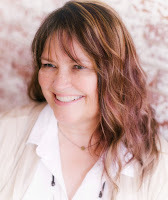 Edie Melson is a woman of faith with ink-stained fingers observing life through the lens of her camera. No matter whether she’s talking to writers, entrepreneurs, or readers, her first advice is always “Find your voice, live your story.” As an author, blogger, and speaker she’s encouraged and challenged audiences across the country and around the world. Her numerous books reflect her passion to help others develop the strength of their God-given gifts and apply them to their lives.Connect with her on her website, through Facebook, Twitter and on Instagram.
Edie Melson is a woman of faith with ink-stained fingers observing life through the lens of her camera. No matter whether she’s talking to writers, entrepreneurs, or readers, her first advice is always “Find your voice, live your story.” As an author, blogger, and speaker she’s encouraged and challenged audiences across the country and around the world. Her numerous books reflect her passion to help others develop the strength of their God-given gifts and apply them to their lives.Connect with her on her website, through Facebook, Twitter and on Instagram.
Published on August 29, 2020 22:00
August 28, 2020
5 Tips for Finding Your Readers
Edie here. Today I'm excited to welcome an author I love to The Write Conversation. She has a new release for Christmas and I cannot wait to dive into
Her Christmas Dream
! Be sure to give Jo a great TWC welcome!
 5 Tips for Finding Your Readersby Jo Huddleston
5 Tips for Finding Your Readersby Jo Huddleston
Remember the scene in the movie “The Princess Diaries,” where Mia (Anne Hathaway) sits on the low stone wall outside of her high school before classes began? A boy came along looking for space to sit there also. He sat on her lap before realizing she was there. Mia told her best friend about the incident and wailed, “I’m invisible, nobody sees me,” or something like that. She didn’t fit in and felt like nobody even saw her much less paid any attention to her. I could identify with Mia when I first tested the waters as a writer.When I decided I wanted to write for publication, all I had were aspiration and hope. I had not studied the craft of writing, but I had loved books and reading all my life. So I sent my first short stories to Good Housekeeping and Ladies Home Journal. Those form rejection letters came back to me with haste! It didn’t take me long to discover that I needed help if I were to realize my dream of writing The Great American Novel.
I scoured the racks in the mall bookstore and found magazines about writing. I bought Writer’s Digest and The Writer. Idevoured their contents, where I found book titles about all aspects of writing. Also, I learned there were market guides and ordered one.
From articles in those writing magazines, I learned how significant was my lack of knowledge about writing for publication. Paramount was that I didn’t know a writer needed to study a publisher’s or publication’s writer’s guidelines to enable her to write to their reading audience.
As I studied the craft of writing and used market guides, I targeted denominational Sunday school papers. I followed their guidelines for submission and began to have my articles and short stories accepted for publication. From their guidelines, I knew these publications’ audiences, what their denominational readers expected in their reading material.
But when we don’t know our specific reader expectations, how do we learn who our readers are and what they want in their reading experience?
5 tips I’ve found helpful for finding your readers and what they want:1. Perusing your four- and five-star book reviews on Amazon will help. While reading your them, you’ll probably tend to see in those reviews the words or phrases the reader uses when telling why they liked your book. Make a list of those words and phrases, and they will guide you in your writing. If those good book reviews mention they loved your small town or clean and wholesome stories, it might not be prudent to give these readers mystery stories or psychological thrillers.2. If you have a Facebook page, you can check out their Facebook Audience Insights. These insights or analytics give information about people visiting your page and/or reading your Facebook posts. Studying these insights, you can create content that resonates with your typical reader. Facebook insights will also help you to locate other people like the ones in your existing audience. This Facebook data will tell you a lot about the folks interested in what you post on Facebook: their gender, age, job titles, education levels, interests, marital status, and more.3. On your book’s Amazon sales page, examine the “Customers who bought this item also bought” section to see what other books those interested in your writing have purchased. This information can further help you to formulate in your mind’s eye who your average reader is.4. Of course, if you write in a genre you love to read (which is a wise thing to do), you could even use your own characteristics to help formulate who your readers are.5. To help you identify your readers, you can also search this blog, The Write Conversation, for excellent articles on this subject. I typed “readers” in the search bar near the top of the screen, and this post came up: “5 Tips for Collecting New Readers and Connections.” Another search gave me the article, “Tried and True Ways to Attract Readers.”When you do find your readers, initially, it’s crucial not to bombard them with “Buy my book” messages. Writers first need to build friendships with their readers, letting them know you as you learn about them. Only then will they probably have a genuine and continued interest in what you write, and you won’t have to repeatedly tell them to “Buy my book.”
When you identify your readers and learn about them, you can better give them what they expect from you in your writing. Among other goals, we write for our readers. Strive to do everything you can not to disappoint them, and they will stay with you from article-to-article and from book-to-book that you write.
Oh, and, by the way, reading those writing magazines I bought at the mall bookstore, I also learned about writers’ conferences. I attended my first one in Tulsa, Oklahoma. But among those seasoned writers’ conference-goers, I was so invisible I didn’t even realize I was invisible. I was Mia in Princess Diaries all over again. I’m thankful our learning never ends.
TWEETABLE5 Tips for Finding Your Readers - Jo Huddleston on @EdieMelson (Click to Tweet)
 Her Christmas Dream
Her Christmas Dream
A Christmas romance sprinkled with suspense!
In this sweet romance set in north Georgia, all Marilyn dreams of for Christmas is a relationship with someone who cares for her. Someone who really knows her. A stranger volunteers at the rescue shelter where Marilyn and her best friend George volunteer. George has concerns about Marilyn’s safety if she dates the stranger. When George becomes overprotective of her, will Marilyn choose the bad-boy-stranger or her best friend to spend Christmas with this year?
Read this 20th-century story to find out which one Marilyn chooses.
 Jo Huddleston is a multi-published author who writes novels inspired by her fascination with the 1950s and her love of her native American South. Novels in her endearing Caney Creek series, her West Virginia Mountains series, as well as her stand-alone release, Tidewater Summer, are sweet Southern historical romance novels. Visit Jo at her website (www.johuddleston.com), where you can sign up for her mailing list and read for free the first chapters of her novels and novellas.
Jo Huddleston is a multi-published author who writes novels inspired by her fascination with the 1950s and her love of her native American South. Novels in her endearing Caney Creek series, her West Virginia Mountains series, as well as her stand-alone release, Tidewater Summer, are sweet Southern historical romance novels. Visit Jo at her website (www.johuddleston.com), where you can sign up for her mailing list and read for free the first chapters of her novels and novellas.
Website: http://www.johuddleston.comAmazon author page: http://amzn.to/1TY4uDIFacebook personal page: https://bit.ly/30V6rdhFacebook author page: https://bit.ly/336Nabg
 5 Tips for Finding Your Readersby Jo Huddleston
5 Tips for Finding Your Readersby Jo HuddlestonRemember the scene in the movie “The Princess Diaries,” where Mia (Anne Hathaway) sits on the low stone wall outside of her high school before classes began? A boy came along looking for space to sit there also. He sat on her lap before realizing she was there. Mia told her best friend about the incident and wailed, “I’m invisible, nobody sees me,” or something like that. She didn’t fit in and felt like nobody even saw her much less paid any attention to her. I could identify with Mia when I first tested the waters as a writer.When I decided I wanted to write for publication, all I had were aspiration and hope. I had not studied the craft of writing, but I had loved books and reading all my life. So I sent my first short stories to Good Housekeeping and Ladies Home Journal. Those form rejection letters came back to me with haste! It didn’t take me long to discover that I needed help if I were to realize my dream of writing The Great American Novel.
I scoured the racks in the mall bookstore and found magazines about writing. I bought Writer’s Digest and The Writer. Idevoured their contents, where I found book titles about all aspects of writing. Also, I learned there were market guides and ordered one.
From articles in those writing magazines, I learned how significant was my lack of knowledge about writing for publication. Paramount was that I didn’t know a writer needed to study a publisher’s or publication’s writer’s guidelines to enable her to write to their reading audience.
As I studied the craft of writing and used market guides, I targeted denominational Sunday school papers. I followed their guidelines for submission and began to have my articles and short stories accepted for publication. From their guidelines, I knew these publications’ audiences, what their denominational readers expected in their reading material.
But when we don’t know our specific reader expectations, how do we learn who our readers are and what they want in their reading experience?
5 tips I’ve found helpful for finding your readers and what they want:1. Perusing your four- and five-star book reviews on Amazon will help. While reading your them, you’ll probably tend to see in those reviews the words or phrases the reader uses when telling why they liked your book. Make a list of those words and phrases, and they will guide you in your writing. If those good book reviews mention they loved your small town or clean and wholesome stories, it might not be prudent to give these readers mystery stories or psychological thrillers.2. If you have a Facebook page, you can check out their Facebook Audience Insights. These insights or analytics give information about people visiting your page and/or reading your Facebook posts. Studying these insights, you can create content that resonates with your typical reader. Facebook insights will also help you to locate other people like the ones in your existing audience. This Facebook data will tell you a lot about the folks interested in what you post on Facebook: their gender, age, job titles, education levels, interests, marital status, and more.3. On your book’s Amazon sales page, examine the “Customers who bought this item also bought” section to see what other books those interested in your writing have purchased. This information can further help you to formulate in your mind’s eye who your average reader is.4. Of course, if you write in a genre you love to read (which is a wise thing to do), you could even use your own characteristics to help formulate who your readers are.5. To help you identify your readers, you can also search this blog, The Write Conversation, for excellent articles on this subject. I typed “readers” in the search bar near the top of the screen, and this post came up: “5 Tips for Collecting New Readers and Connections.” Another search gave me the article, “Tried and True Ways to Attract Readers.”When you do find your readers, initially, it’s crucial not to bombard them with “Buy my book” messages. Writers first need to build friendships with their readers, letting them know you as you learn about them. Only then will they probably have a genuine and continued interest in what you write, and you won’t have to repeatedly tell them to “Buy my book.”
When you identify your readers and learn about them, you can better give them what they expect from you in your writing. Among other goals, we write for our readers. Strive to do everything you can not to disappoint them, and they will stay with you from article-to-article and from book-to-book that you write.
Oh, and, by the way, reading those writing magazines I bought at the mall bookstore, I also learned about writers’ conferences. I attended my first one in Tulsa, Oklahoma. But among those seasoned writers’ conference-goers, I was so invisible I didn’t even realize I was invisible. I was Mia in Princess Diaries all over again. I’m thankful our learning never ends.
TWEETABLE5 Tips for Finding Your Readers - Jo Huddleston on @EdieMelson (Click to Tweet)
 Her Christmas Dream
Her Christmas Dream
A Christmas romance sprinkled with suspense!
In this sweet romance set in north Georgia, all Marilyn dreams of for Christmas is a relationship with someone who cares for her. Someone who really knows her. A stranger volunteers at the rescue shelter where Marilyn and her best friend George volunteer. George has concerns about Marilyn’s safety if she dates the stranger. When George becomes overprotective of her, will Marilyn choose the bad-boy-stranger or her best friend to spend Christmas with this year?
Read this 20th-century story to find out which one Marilyn chooses.
 Jo Huddleston is a multi-published author who writes novels inspired by her fascination with the 1950s and her love of her native American South. Novels in her endearing Caney Creek series, her West Virginia Mountains series, as well as her stand-alone release, Tidewater Summer, are sweet Southern historical romance novels. Visit Jo at her website (www.johuddleston.com), where you can sign up for her mailing list and read for free the first chapters of her novels and novellas.
Jo Huddleston is a multi-published author who writes novels inspired by her fascination with the 1950s and her love of her native American South. Novels in her endearing Caney Creek series, her West Virginia Mountains series, as well as her stand-alone release, Tidewater Summer, are sweet Southern historical romance novels. Visit Jo at her website (www.johuddleston.com), where you can sign up for her mailing list and read for free the first chapters of her novels and novellas.Website: http://www.johuddleston.comAmazon author page: http://amzn.to/1TY4uDIFacebook personal page: https://bit.ly/30V6rdhFacebook author page: https://bit.ly/336Nabg
Published on August 28, 2020 22:00
August 27, 2020
The Power of Encouragement for Writers

By Lori Hatcher @LoriHatcher2
Theresa Silva had no idea how her words would impact me, an impressionable sixth grader. The substitute teacher had assigned the usual What I Did over Summer Vacation assignment, and I’d written about visiting my grandmother in South Carolina. I used words like tilled and harvested in my composition.
Mrs. Silva was the first person to recognize my fledgling writing ability and affirm it. Today, forty years later, I still remember the flush of pleasure I felt when I read her compliment.
As I penned the Acknowledgments section of my first book, I recalled her words. I need to thank her, I thought. I did a search on Facebook and Whitepages.com, but couldn’t find a profile or a listing. Maybe she’d moved away or lived in a nursing home by now.
Last summer I returned to my hometown of Bristol, Rhode Island. I brought copies of my second book, Hungry for God … Starving for Time to share with my family. I told them the story of my sixth grade substitute teacher’s empowering words and how I’d unsuccessfully tried to find her.
“What was her name?” asked my cousin, who had recently retired from teaching herself. When I told her, her eyes grew wide and her mouth popped open. “Theresa Silva? She’s one of my best friends!”
She pulled out her phone, and with a few clicks, had set up a time for me to visit Mrs. Silva the following day.
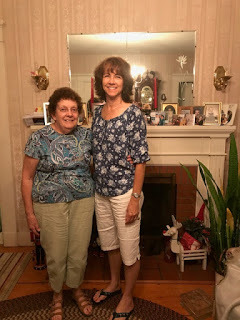 When she opened the door, I saw that the years had been kind to her. Her curly hair was lighter, but the same kind eyes smiled at me from behind her round glasses.
When she opened the door, I saw that the years had been kind to her. Her curly hair was lighter, but the same kind eyes smiled at me from behind her round glasses. I told her the story of my publishing journey and ended by quoting the words she’d written at the bottom of my paper.
“You probably don’t remember that,” I said, “but I’ve never forgotten it. God used your words to help me recognize the calling He’s placed on my life.”
I placed a copy of my book in her hands and gave her a hug.
“Thank you.”
She ran a hand over the cover and flipped open the book to the table of contents. Then she raised her eyes. A tear leaked out of the corner of one, but she didn’t seem to notice.
“I retired four years ago,” she said softly. “I always wondered if anything I did made a difference.”
Last month I mailed her a copy of my latest book, Refresh Your Faith, Uncommon Devotions from Every Book of the Bible. I received a note back. Her handwriting is still lovely, and she again used her words to encourage and inspire me.
Please continue to let your special gift of spiritual discovery and writing unfold. I’m looking forward to your next work.
As I felt the familiar flush of pleasure, I realized anew the timeless power of encouragement.
Perhaps my story has stirred up a memory or two. Who was the first person to recognize your writing potential? Who affirmed your gift? Was it a teacher? A parent? A mentor? A writing coach? Have you ever thanked them? If you did, what happened? I’d love to hear about it. Leave a comment below and share your story.
And if you haven’t reached out yet, perhaps the next piece of writing you should do is a good old-fashioned thank you note.
Who knows how the Lord might use your words to encourage someone else?
TWEETABLEThe Power of Encouragement for Writers - @LoriHatcher2 on @EdieMelson (Click to Tweet)
 Lori Hatcher loves to teach, train, and encourage writers by sharing what others have generously shared with her. She’s the author of several devotional books including
Refresh Your Faith – Uncommon Devotions from Every Book of the Bible
and
Hungry for God … Starving for Time, Five-Minute Devotions for Busy Women
, the 2016 Christian Small Publisher Book of the Year. The editor of
Reach Out, Columbia
magazine, she’s also a blogger, writing instructor, and inspirational speaker. You’ll find her pondering the marvelous and the mundane on her blog, Hungry for God. . . Starving for Time . Connect with her on Facebook, Twitter (@LoriHatcher2), or Pinterest (Hungry for God).
Lori Hatcher loves to teach, train, and encourage writers by sharing what others have generously shared with her. She’s the author of several devotional books including
Refresh Your Faith – Uncommon Devotions from Every Book of the Bible
and
Hungry for God … Starving for Time, Five-Minute Devotions for Busy Women
, the 2016 Christian Small Publisher Book of the Year. The editor of
Reach Out, Columbia
magazine, she’s also a blogger, writing instructor, and inspirational speaker. You’ll find her pondering the marvelous and the mundane on her blog, Hungry for God. . . Starving for Time . Connect with her on Facebook, Twitter (@LoriHatcher2), or Pinterest (Hungry for God).
Published on August 27, 2020 22:00
August 26, 2020
Proverbs for Writers: BE a Writer

by Henry McLaughlin @RiverBendSagas
This is another in my periodic series on proverbs for writers. The inspiration comes from the book of Proverbs and how a particular verse strikes me. I don’t go looking for them. And I’m not looking to preach. I’m seeking to share a word from God that applies to me at the moment and may be relevant to you as well.
Recently I was talking with someone who said she wanted to write a book. And how often have we heard that? When we share we are writers with others, we frequently hear the comment, “I’ve always wanted to write a book, but I can’t find the time.” Or, “I’ve got a brilliant idea for a book. Write it for me.” Most of our acquaintances never move past this talking stage.
As I talked with this person, it became clear she had a superb idea for a book aimed at other professionals in her field. A book to help them grow professionally and to better serve their clients. It’s based on her own experiences plus research she’s gathered.
One of her frustrations is not having the time to write. We talked about the need for a conscious decision to make the time to write, even if it means getting up earlier, rather than hoping (wishing is a better word) to find the time. If you’ve been a serious writer for over five minutes, some friend or relative has said this to you in one form or another. It’s almost like they envy us. Until we share how we carve out the time to write.
Her other frustration was not knowing if she could write. Then I heard the Lord in his still small voice say, “Help her.”
Why did God tell me this? I believe it was because she’s ready to move past talking about writing a book. She’s ready to BE a writer. I believe God brought us together for this purpose. He sees some gift or talent he placed in me that can help her. I’ve learned over time these are his divine appointments and to trust him and obey.
What happened here to change the situation? She’s decided to BE a writer, to seek help with learning the craft and pulling together a book. She’s let go of the need to be perfect. Now, she has something to work with. I’m blessed to be part of this effort and I’m awed at the responsibility to help her. Once again, I have to trust God knows what he is doing. She also has to trust him.
She’s writing her first draft now, knowing it will be lousy. I shared Norah Lofts quote with, “I can fix a bad page. I can’t fix a blank page.” She’s willing to make the effort and the time to answer the call God has placed on her.
Do you remember when you moved from wanting to write to being a writer? How would you convey this to someone who tells you they want to write a book but haven’t moved past the talking stage?
TWEETABLEProverbs for Writers: BE a Writer - Henry McLaughlin, @RiverBendSagas on @EdieMelson (Click to Tweet)
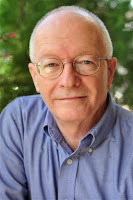 Henry’s debut novel, Journey to Riverbend, won the 2009 Operation First Novel contest.
Henry’s debut novel, Journey to Riverbend, won the 2009 Operation First Novel contest.Henry edits novels, leads critique groups, and teaches at conferences and workshops. He enjoys mentoring and coaching individual writers.
Connect with Henry on his blog, Twitter and Facebook.
Published on August 26, 2020 22:00
August 25, 2020
The Writer’s Need for Tenacity

by DiAnn Mills @DiAnnMills
The road to publication is paved with challenges and blessings. The path is seldom straight. It’s often twisted, filled with ruts, briars, bruises, and sometimes it leads us dangling over a cliff. But at the completion, we are strong and successful writers because a successful writer is tenacious.
Some writers are afraid to grasp onto their dreams. They are commonly referred to as closet-writers. If they fail, they haven’t lost anything. Or have they? Giving up on ourselves isn’t the way to success.
Other writers are doggedly determined to make it. Doesn’t matter how long it takes to learn the craft. Doesn’t matter how many rejections. Doesn’t matter how many rewrites. Doesn’t matter the intricate nuances of marketing and promotion. They are persistent. Just try to tell them they don’t have what it takes to succeed, and their tenacity raises another notch. Those are my kind of writers. Because I’m one of them.
I believe the cost of doing everything to reach writing goals far outweighs the cost of doing nothing. Failure is not an option.
Below is a acronym for tenacity. Take a look. Can you incorporate these tips into your writing life?
T E N A C I T Y T is for Thick Skin. A writer needs rhino skin to survive the publishing world. We must learn the craft, a continuing process. We toughen up to accept constructive criticism and move forward to write a quality story that honors God and entertains the reader. E is for Entertain. Whether plot driven or character driven, story’s foremost purpose is to entertain the reader with unforgettable characters and a unique plot. Stretch yourself to create a memorable experience. N is for Never Give Up. When a critique points out flaws and weaknesses in our manuscript; or when a friend or family member believes you’re wasting your time; or when an agent or editor rejects a manuscript; it’s easy to walk away. But a successful writer never gives up. I treasure Winston Churchill’s statement, “Never, never, never give up.” I also value his quote, “If you’re going through hell, keep going.” In fact, that is how we writers often feel when we’re struggling with our stories. A is for Active. An active writer understands her career is not spent behind a desk. She becomes involved in a writer’s group and attends writer conferences. Networking within the industry is necessary for professional contacts and friendships. An active writer keeps her body in shape. An unhealthy body means an unhealthy mind, and that means creativity crashes. C is for Characters. Characters are the lifeblood of a novel. Their roles live in the hearts of our readers. We have a responsibility to fully develop our characters physically, spiritually, emotionally, and mentally. Characters reveal themselves in every aspect of our novels, so the reader never forgets them. I is for Inspire. One of our goals is to inspire readers to grow and change, and become better people. We accomplish this by showing a character who walked through fire and survived. We want readers to be inspired by our stories and discover ways for them to live triumphantly T is for Truth. Story is a vehicle to show truth. It’s revealed in our premise and theme, surfacing in our protagonists attitudes and motivation. God may not be mentioned in our novels, but His truth reigns in characterization and plot. Y is for You. Each writer has been given a gift. The writer can choose to ignore it, play with it, give it back, or develop the gift into a beautiful story. I can’t do it for you. It’s your seed to nurture and grow. A professional writer works hard and weaves determination into every word. Tenacity. What does it mean to you?
TWEETABLEThe Writer’s Need for Tenacity - @DiAnnMills on @EdieMelson (Click to Tweet)
 DiAnn Mills is a bestselling author who believes her readers should expect an adventure. She creates action-packed, suspense-filled novels to thrill readers. Her titles have appeared on the CBA and ECPA bestseller lists; won two Christy Awards; and been finalists for the RITA, Daphne Du Maurier, Inspirational Readers’ Choice, and Carol award contests.
DiAnn Mills is a bestselling author who believes her readers should expect an adventure. She creates action-packed, suspense-filled novels to thrill readers. Her titles have appeared on the CBA and ECPA bestseller lists; won two Christy Awards; and been finalists for the RITA, Daphne Du Maurier, Inspirational Readers’ Choice, and Carol award contests. She is the director of the Blue Ridge Mountain Christian Writers Conference, Mountainside Marketing Retreat, and Mountainside Novelist Retreat with social media specialist Edie Melson. Connect here: DiAnnMills.com
Published on August 25, 2020 22:00
August 24, 2020
Dipping the Quill Deeper - Writing with Your Whole Heart
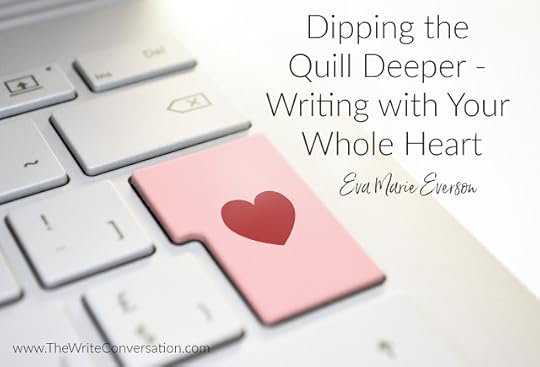
by Eva Marie Everson @EvaMarieEverson
Look at these words from 2 Chronicles 31:
…and he did what was good and right and true before the LORD his God. And in every work that he began in the service of the house of God, in the law and in the commandment, to see His God, he did it with all his heart. So he prospered.
“He” is King Hezekiah, the 13th king of Judah. Hezekiah, unlike his father who “did evil in the sight of the Lord,” was a good king. A righteous king. During his reign he enacted religious reforms that declared only Jehovah would be worshiped in the temple, which he both purified and repaired. Then, he declared that the centralized worship would be there and there alone. He reinstated Passover. This, we read, brought “great joy” to Jerusalem.
But What Does That Have to do With Me?You are a writer, right? And, I assume that many of you are in service to God, just as Hezekiah was in service to God.
And, I assume, you want your work—your words—to make a difference. To be “pleasing in the eyes of the Lord,” as the Bible records the works of men like Hezekiah and not like those of his father.
So, then, let’s look carefully at the words written about Hezekiah. What did he do that caused him to prosper in whatever he put his hand to? It’s really fairly simple.He did what was good and right and true. He sought God.Every work he began, he did so with all his heart.
Is this what you do in your work? How does that translate for you … to do what is good and right and true within writing and publishing? Last year I heard a prominent speaker who told that, for years, she had told a hilarious story from the stage that always got people rolling. She had, indeed, gained fame from it. The only problem was … it wasn’t true, and she told it as though it were. It had begun simple enough. She told the true story and got a laugh. Then added to it and got a bigger laugh … and so on and so forth. Oh, she said, but how freeing when she finally admitted that it simply wasn’t true!
But what about what is good? Do you do your best when you write, or do you simply throw words on paper and hope for the best? Do you aim your words toward the kingdom or toward a paycheck? (Let me reiterate here that we earn our wages and wages are important, but are they your primary focus?)
Do you see God’s will in the work? Do you want to assure that your readers will see Him and His hope and His plan for them? And what about you? Are you seeking God more diligently based on what you write (nothing has ever effected me quite like writing The Final Race with Eric Eichinger, a book about the life of Olympiad Eric Liddell. I grew as a Christian in ways hard to describe just doing the research and the work because it forced me to stop and ponder the strength of the Lord inside us when we should be overcome by our circumstances).
Bottom Line Do you begin (and end) your work by putting your whole heart into it? There are bound to be things about writing that you don’t like (for some, it’s editing, for others research …). But even these things should be done with your whole heart. Give it everything you’ve got. Remember, your work is your gift back to the Giver of your talents. He is worthy of only our best.
TWEETABLEDipping the Quill Deeper - Writing with Your Whole Heart - @EvaMarieEverson on @EdieMelson (Click to Tweet)
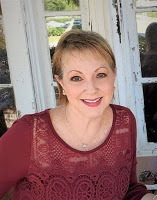 Eva Marie Everson is the president of Word Weavers International and the director of its two conferences. She is the multiple award-winning author of nearly 40 works and has received awards as a speaker and Bible teacher. Eva Marie is often seen at writers conferences across the States. She served as a mentor for Jerry B. Jenkins’ Christian Writers Guild for several years, and taught as a guest professor at Taylor University in 2011. She and her husband make their home in Central Florida where they enjoy their grandchildren. They are owned by one small dog and a princess cat.
Eva Marie Everson is the president of Word Weavers International and the director of its two conferences. She is the multiple award-winning author of nearly 40 works and has received awards as a speaker and Bible teacher. Eva Marie is often seen at writers conferences across the States. She served as a mentor for Jerry B. Jenkins’ Christian Writers Guild for several years, and taught as a guest professor at Taylor University in 2011. She and her husband make their home in Central Florida where they enjoy their grandchildren. They are owned by one small dog and a princess cat.
Published on August 24, 2020 22:00



